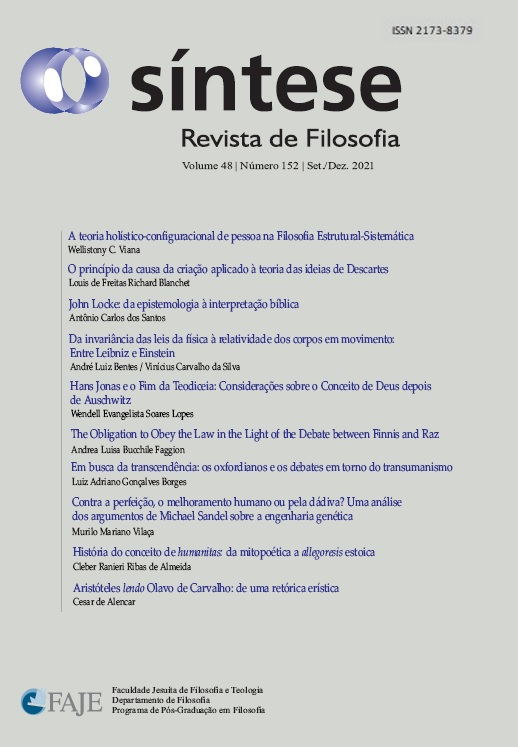HANS JONAS AND THE END OF THEODICY: CONSIDERATIONS ON THE CONCEPT OF GOD AFTER AUSCHWITZ
DOI:
https://doi.org/10.20911/21769389v48n152p695/2021Abstract
This paper shows how from a logical ontological perspective and a theological one, the German-Jewish philosopher Hans Jonas develops a concept of God whose core provides a basis for purging – that is, for putting an end to – all theodicy. As is well known, theodicy has always resorted to three basic responses: the banality of evil, the logic of guilt and that of sacrifice. These were always answers to the problem of evil. But what happened in Auschwitz breaks definitively with those approaches. There is no reason for such evil, because in Auschwitz there was no guilt or martyrs; it was an event of incomprehensible magnitude. Faced with the horror of Auschwitz, Jonas reflects on a myth that he himself had developed initially as an answer to the question of immortality, but that he will use later to think about the abyssal question of theodicy. What Jonas draws from his myth is the idea of a God who is becoming, suffering, and caring. In this way of thinking, the Divine” can no longer be said to be omnipotent, and such an image of God provides the answer to the question of theodicy: a powerless God can no longer be said to be responsible. The result can be none other than the nonsense of condemning the divine because of the reality of evil.


















